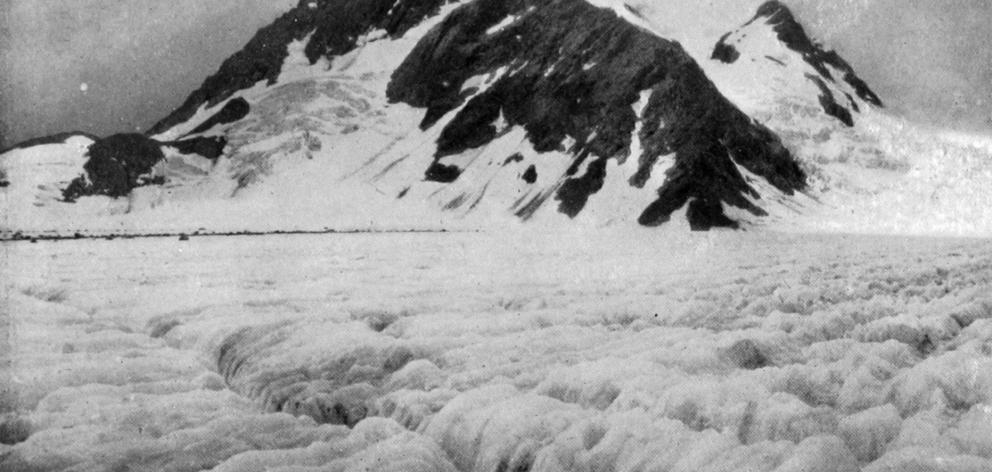
A municipality in the North Island has made him an offer sufficiently attractive to put its immediate rejection by him out of the question.
We believe that the majority of the residents of Dunedin so fully appreciate the services which Mr Tannock has rendered in this community that they consider it would be a public misfortune if an effort were not to retain them.
Steps have already been taken to put this view before the Mayor, and, upon the principle that it is a mistake to part with an official who has performed conspicuously good service and is in all human probability capable of continuing to render that service for a great many years, we beg to associate ourselves with the movement to secure a retention of Mr Tannock’s services for the city.
Bureaucratic bungle
A curious and striking story was told to a Southland Times reporter on Saturday. Two years ago a youth employed in the shop of a well-known Invercargill grocer made up his mind to go to the war.
He was only 18 years of age, but was well grown, and managed to pass the doctors and join the Expeditionary Force.
In due course he went to the front, was wounded, invalided to New Zealand, and discharged. On Wednesday morning the ballot list had an unusual interest for him, for he read his own name in it among the youths of the First Division automatically called up on reaching the age of 20 years.
There was perhaps nothing surprising in that.
The Government Statistician could hardly be expected to know that this lad of 20 years had two years’ service to his credit and had received an honourable discharge from the army.
Roadside trees advocated
Writing in the New Zealand Journal of Science and Technology on the question of the acclimatisation of animals, Mr H. W. Simminds, F. E. S., suggests as a good plan for increasing the carrying capacity of the country in the broadest sense of the word that the Government should undertake the planting of all our main arterial roads with trees. In the north puriri and possibly kauri and some eucalypts could be used while over the rest of the country various species of eucalyptus, totara, and certain American trees of choice varieties, and in the cooler parts oak, could be tried. In the neighbourhood of towns and villages such trees as poplars, Cape silver-leaf, Australian scarlet flowering gum, and in the cooler parts holly, birch, and native beeches would add to the beauty of the landscape, and would provide much-needed shelter and breakwinds on country roads, eventually paving the way for introducing other animal life and assisting present species to move from one district to another.
Whaling vagaries
Fortune has not favoured Johnston’s whaling party for some days — since landing the fourth whale of the season. Several unsuccessful chases have been made, but bad luck has been experienced. A fine humpback was killed off the peninsula but sank, while another was bombed twice, and got fast with two irons, when it, too, sank a short distance off Maungamaunu, 10 miles north of Kaikoura. — ODT, 25.6.1918.
• COPIES OF PICTURE AVAILABLE FROM ODT FRONT OFFICE, LOWER STUART ST, OR WWW.OTAGOIMAGES.CO.NZ












